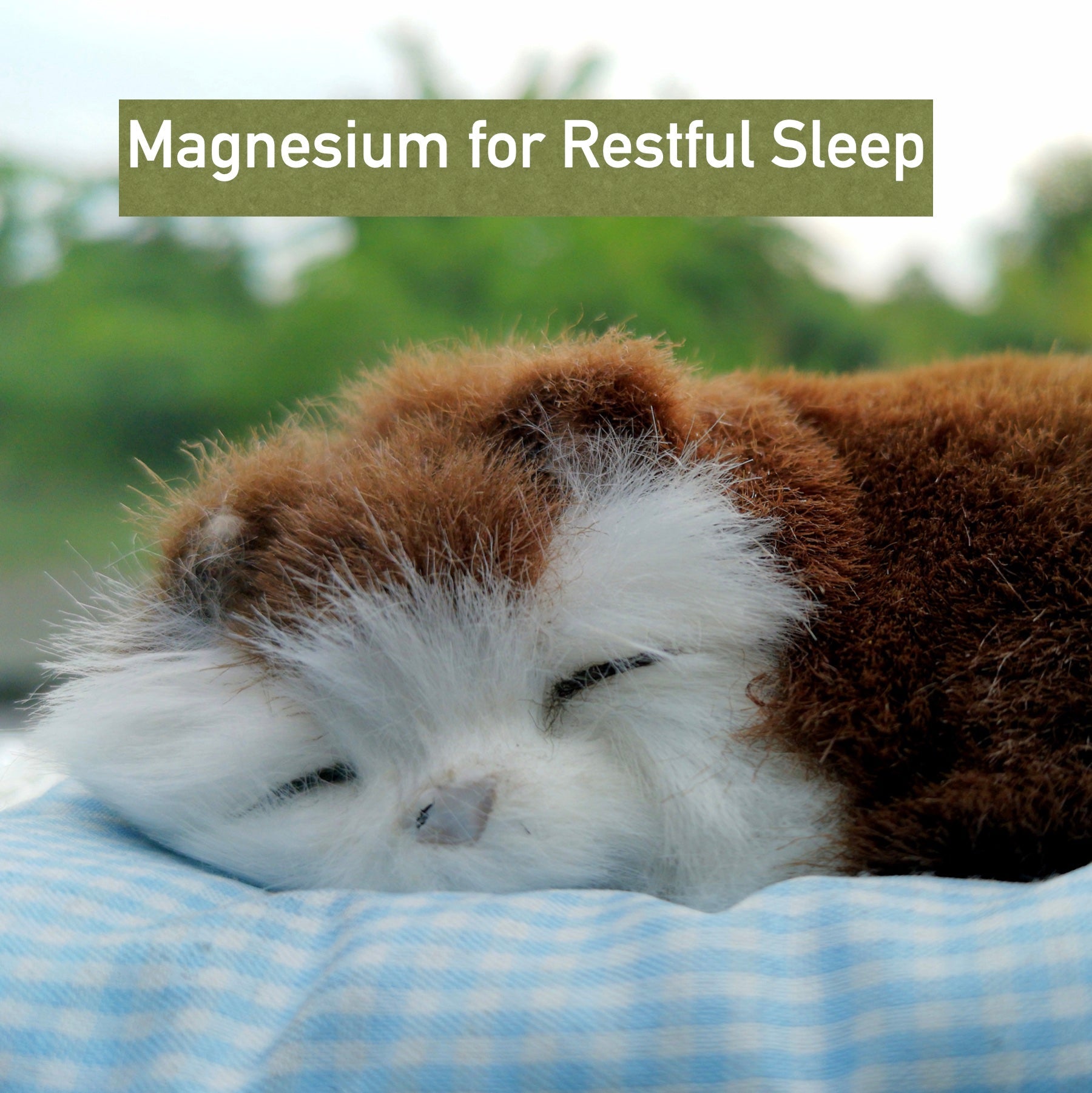
Magnesium for Restful Sleep
Sleep is not simply a time when our organs pause their work. It is a complex biochemical process that activates the body’s restorative functions. These biochemical reactions require certain nutrients, one of the most important being magnesium. But how exactly does magnesium support sleep?
Regulation of Melatonin
Melatonin is a hormone produced by the pineal gland that regulates circadian rhythms. Magnesium plays a key role in its synthesis, helping the body transition from wakefulness to restful sleep. People who frequently travel across time zones or work night shifts often experience impaired melatonin production, making magnesium especially important for them.
Lowering Cortisol Levels
Cortisol, often called the “stress hormone,” can disrupt healthy sleep when present in high amounts. Magnesium helps reduce cortisol levels, promoting relaxation and improving overall sleep quality.
Calming the Nervous System
Magnesium has a soothing effect on the nervous system. By reducing neuronal activity, it helps the body enter a state of rest. This is particularly beneficial for individuals struggling with anxiety and stress, which are common barriers to falling asleep.
Relaxing the Muscles
Chronic stress often leads to persistent tension in skeletal muscles—an evolutionary “fight-or-flight” response to perceived threats. Magnesium supplementation helps relieve muscle spasms, giving both the body and brain a chance to recover properly during sleep.
Magnesium deficiency can cause various sleep problems, including insomnia, frequent awakenings, and poor sleep quality. Research shows that increasing magnesium intake improves sleep, with particularly strong effects observed in older adults. More than 50% of people over 60 report difficulties such as trouble falling asleep, nighttime awakenings, shallow sleep, and morning fatigue.
A study published in the Journal of Research in Medical Sciences (2012, 17(12)) demonstrated magnesium’s effectiveness in improving sleep disorders in older individuals. Compared to the control group, those receiving magnesium supplements experienced longer and more efficient sleep, higher melatonin levels, and significantly lower cortisol levels. They also reported fewer early-morning awakenings.
If your diet does not provide enough magnesium, supplementation may be a helpful solution. It is important to choose forms of magnesium that are easily absorbed. One valuable option is Magnesium Sanatur, which combines two natural components: pure magnesium extracted from seawater and organic nettle powder—a plant exceptionally rich in magnesium compounds.
Buy Magnesium, MUSCLES & NERVES, Capsules
Another excellent option, and in some cases even an alternative to oral supplementation, is a magnesium bath. A warm bath can help reduce mental and muscular tension.”
